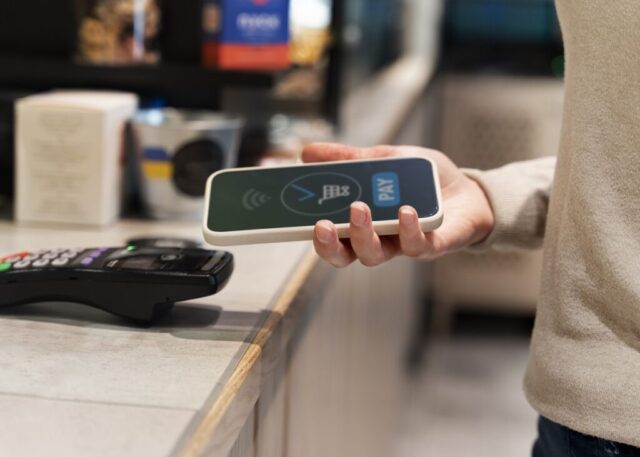Smartphones are practically an extension of our hands. We do so much more than call or text: we bank, work, shop, socialize, and store everything from our calendars to our most personal photos. So it’s totally fair to wonder — do we actually need antivirus apps on our phones? Or are these just scare tactics dressed up as software? Let’s break down the most common beliefs and misbeliefs about mobile antivirus in 2025 — and help you figure out if it’s something you genuinely need.
What exactly do mobile antivirus apps do?
Much like computer antivirus, mobile antivirus apps scan your apps, downloads, and sometimes your web traffic for anything fishy. When something doesn’t seem right, they’ll either notify you or take care of it in the background. Good antivirus apps can also:
- Block phishing websites,
- Stop annoying pop-up ads,
- Keep tabs on suspicious app behavior,
- Help you find, lock, or wipe your phone remotely if it gets lost or stolen.
Some of the smarter ones use AI to detect unusual behavior — like a rogue app quietly sending texts, recording the screen, or trying to snoop through your mic or camera. That’s a whole new level of protection.
Myth: iPhones don’t need antivirus
A classic myth. Yes, iPhones are more locked down than Androids, and Apple reviews every app in its store. But no system is perfect. Even iPhone users can get caught by:
- Phishing links in emails or texts,
- Dangerous public Wi-Fi,
- Malicious QR codes,
- And if you jailbreak your phone, it’s game over for built-in protections.
While most iPhone users don’t need full-blown antivirus, using a VPN, managing app permissions, and turning on two-factor authentication is definitely smart.
Fact: Android phones face more risks
Android gives users more freedom — but with that comes more exposure. Because you can install apps from almost anywhere, Android phones are more vulnerable to:
- Hidden trojans,
- Data-stealing apps,
- Spammy adware,
- Even crypto-miners draining your phone’s battery.
If you download apps outside the Play Store or tinker with your device settings, antivirus protection is a good idea.
Myth: All antivirus apps are basically the same
Not even close. Free apps usually offer the basics, maybe with some ads. Paid versions go the extra mile. You’ll often find:
- Real-time behavior-based detection,
- Safer browsing features,
- Call and text filtering,
- Alerts for SIM card changes,
- VPN, password vaults, parental tools — the whole package.
Some premium apps also include features for families: GPS tracking, screen time management, and app controls for kids. Always check the feature list — and consult independent test results (like AV-TEST or AV-Comparatives) before you commit.
Fact: Your habits matter more than any app
The best antivirus can’t protect you if you:
- Click every suspicious link you see,
- Hop on sketchy public Wi-Fi networks,
- Never update your apps or OS,
- Say “yes” to every permission an app asks for.
Digital safety starts with smart behavior: review your permissions, enable two-factor logins, back up your data, and stay up-to-date.
Myth: Antivirus apps slow down your phone and kill battery
That might’ve been true back in the day — but not now. In 2025, top antivirus apps are lightweight and efficient. Brands like Bitdefender, Norton, Avast, and ESET design their mobile apps to run quietly in the background.Some even help with battery management. Thanks to AI, these apps only spring into action when needed, without annoying you with constant pop-ups.
Top mobile antivirus apps in 2025
Bitdefender Mobile Security
- Excellent malware detection
- Built-in VPN (200MB/day)
- Low impact on speed and battery
Norton 360
- Anti-theft tools (remote lock, GPS tracking)
- Public Wi-Fi protection
- Data breach monitoring
ESET Mobile Security
- Easy to use and multilingual
- Tracks app permissions
- Blocks shady texts and calls
Kaspersky Security & VPN
- VPN with 300MB/day
- Microphone and camera guard
- Safe browsing and phishing protection
Avast Mobile Security
- Blocks ads
- Scans Wi-Fi networks for risks
- Alerts if your email shows up in data leaks
So, do you need antivirus?
Probably yes, if you:
- Use Android and install apps from outside the Play Store,
- Often connect to public Wi-Fi,
- Store sensitive or personal data on your phone,
- Want to protect a child’s phone with parental controls,
- Use a rooted or jailbroken phone.
Maybe not, if you:
- Use iOS, don’t jailbreak, and stick to trusted sources,
- Already use Apple/Google security tools,
- Are a cautious user who avoids suspicious links and apps.
It’s not just about whether you need antivirus. It’s about how you use your phone. For careful users, built-in protections and good habits might be enough. But for others — kids, heavy Android users, less tech-savvy folks — a good antivirus adds peace of mind.Don’t buy into fear — but don’t ignore the real risks either. Digital safety in 2025 isn’t optional. It’s part of being a responsible phone user.Picture source: Pixabay.com
Image(s) used in this article are either AI-generated or sourced from royalty-free platforms like Pixabay or Pexels.
Did you enjoy this article? Buy me a coffee!






